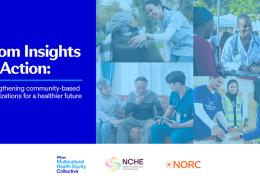When Should You Speak Up at the Doctor’s Office?

We’ve all seen the healthcare system undergo major changes. Providers, patients, and policymakers all share the desire for these changes to result in improved access, enhanced quality for patients and reduced healthcare costs within the system. And though it used to be common for patients to be relatively passive when receiving care, you may now find yourself being invited to participate more fully in the process of your own health and wellbeing. This is true whether you have a chronic condition, an acute illness, or are at a routine wellness visit.
Participating in care requires that you speak up, ask questions, and engage with your healthcare team. If you aren’t already doing so, it’s important that you start. Why should you change your habits? It’s simple. Studies show that patients who are actively engaged in shared decision making have a more satisfying patient experience and may even end up with better healthcare results.
What’s in it for You?
Becoming more active in your own healthcare has many benefits. Right now, the system is shifting from a physician-centered model towards one that revolves much more closely around the patient. This particular model has become more common, and is called patient-centered care. The patient-centered model provides many benefits, but it also can require you to become more informed, and share in a number of health care discussions and decisions, including:
- Different providers available to you
- Conditions and other health concerns you have
- Treatment options
- Financial obligations
- Success carrying out treatment plans
Ultimately, this level of participation may also mean that you might need to interpret data or understand complex health information. It will also require you to ask questions and partner with your healthcare providers and take actions so you get the most affordable quality care you can.
Speaking Up Isn’t Easy for Everyone
Becoming an active participant at a doctor’s visit may not feel easy or natural for everyone. Some people are intimidated in a medical setting. Others may feel it’s rude to question healthcare providers, or feel uncertain about what they know or what they need to know. And let’s face it, if you’re at the doctor’s office, you are probably not feeling your very best anyway. So it can be hard to muster the energy to be your own advocate. Still, half of the doctor/patient relationship depends on you. Providers are not mind readers, and they can’t do their best to help you if they do not know what you’re thinking or feeling.
If you feel anxious about bringing things up to your healthcare team, it may help to simply say so. You can start by saying something like, “Doctor, I have a problem I need to tell you about, but it’s difficult for me to discuss.” You can explain what makes it hard for you by saying: “I find it embarrassing”, or “I’m worried you’ll be angry”, or “I am not sure I am going to be good at taking this treatment the way you want me to.” These kinds of statements alert your provider to listen, and recognize your concerns. Remember: first and foremost healthcare professionals want to help you. They want to have your trust; so when you open up, it helps to allow for honest communication.
How to Get Engaged
Here are some tips to help you become an active participant in your healthcare decision-making:
- Be Prepared: Often, when you’re at the doctor’s, you’re there for a specific reason – like you have a sore throat, or you’ve sprained your ankle. Therefore, it’s a good idea to keep a “grocery list” of all your health issues. Are you having trouble sleeping? Are your allergies acting up? Do you have more stress at work and home than usual? As these types of concerns come up, jot them on the list. Keep the list in your purse or wallet or mobile device, so that it’s easy to bring with you. Use the list to discuss all your concerns during your doctor’s visit. This way, you can make sure they get the attention they need
- Speak Up: Every member of your healthcare team really wants to help you feel better. The best way to get your needs met is to bring up your concerns. If there’s something you have been thinking about concerning your health, something you don’t understand, or something you don’t agree with, say it! While it’s best to discuss your concerns before you leave the exam room, you can ask questions at any time
- Summarize What You’ve Learned: Most providers who know about patient-centered care will ask their patients to repeat back any instructions they were given during their visit. Even if your doctor doesn’t do this, you can help by offering a summary of what you think you heard in your own words. This will give your provider the chance to correct the instructions and offer further guidance
- Follow Through: Once you have confirmed your treatment plan with your healthcare provider, you are the person who has the most responsibility to carry the plan out. If you’ve brought up your concerns and questions, and you’re satisfied with the response, you are ready to follow through
To help you get started, The National Patient Safety Foundation has created a form entitled Ask Me 3. The program encourages patients to ask: What is my main problem? What do I need to do? Why is it important for me to do this?
Work on Being Heard
Once in a great while, you may try to engage with members of your healthcare team over an important matter without getting a complete response. When this happens, it’s good to remember that as with any relationship, it takes work from both sides, and sometimes the chemistry just isn’t right. Take care to broach the topic clearly and courteously. You may try saying, “I’m worried that we’re not on the same page, Doctor.” Or “I’m wondering if we’re not quite understanding one another.”
Of course, if you feel that your concerns are not being addressed, you can always seek a second opinion. What matters most is that you play your part in managing your health, and staying healthy. Whether you have a chronic condition, or you’re simply dealing with a routine matter, if you get active with your healthcare team, you will get better results. After all, it’s your health. Don’t you owe it to yourself to get the best healthcare possible?
Gene Gosselin, RN was previously the Director—Customer Solutions at Pfizer Inc. Gene is a Registered Nurse, Licensed Professional Counselor and a Certified Case Manager with experience designing and delivering health care communications, education, behavioral health and marketing programs.





